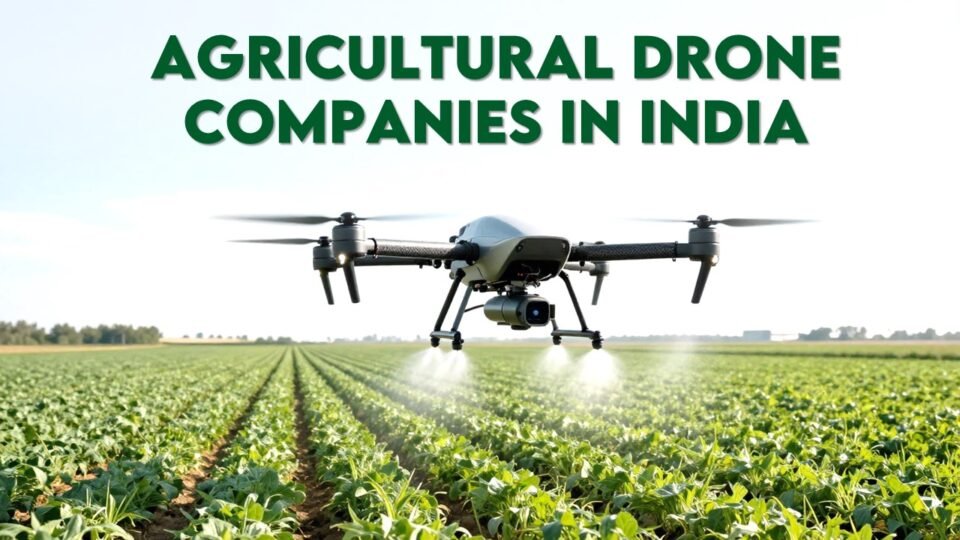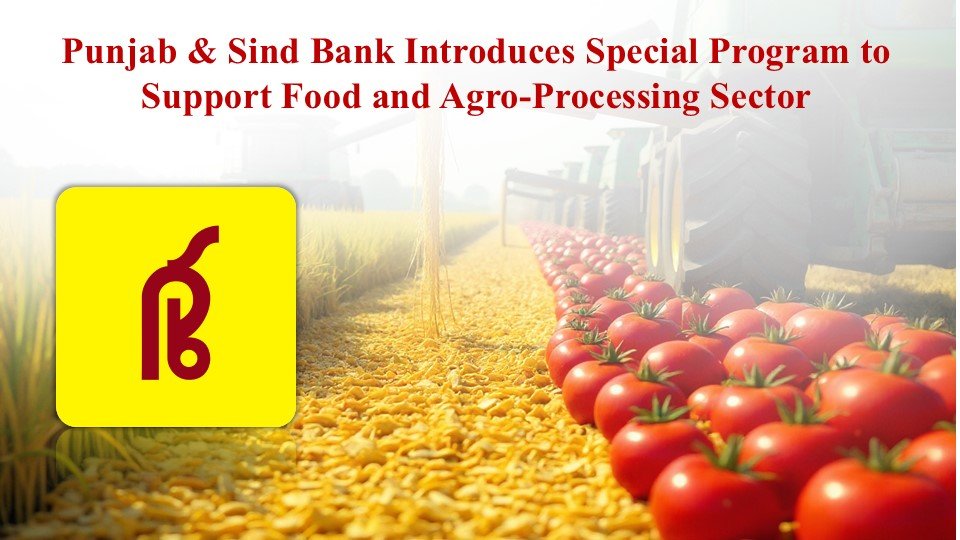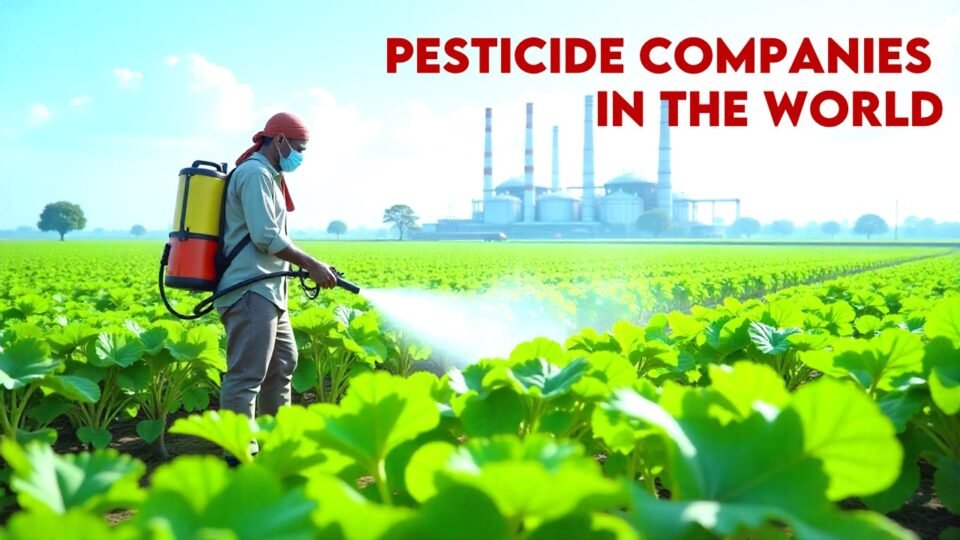Dear readers, as a community eager to learn about current happenings and pivotal points in the field of agriculture, you must have certainly heard about Dr. M. S. Swaminathan’s Green Revolution in India. The term refers to the rapid surge in crop production from 1960s to the present, achieved by using
- High Yielding Varieties (HYVs)
- Chemical fertilizers
- Plant protection chemicals.
But you may be wondering why it is relevant in the context of the topic: Is organic farming profitable?
The Green Revolution saved millions of Indians from starvation and poverty during the post-independence era after 1942, but it came with certain costs. Using chemicals in agriculture was found to
- Deteriorate the land
- Create diseases in humans and animals
- Destroy the soil ecosystem.
In the wake of this, farming practices had to be reformed to promote sustainability and to produce healthy farm products. But the question remains: is organic farming really profitable? Well, you will find out the answer to that in this article.
Organic Farming
Before answering the question: Is organic farming profitable in India, let us understand what organic farming is.
The Food and Agricultural Organisation (FAO) defines Organic farming as
‘Organic agriculture is a unique production management system which promotes and enhances agro-ecosystem health, including biodiversity, biological cycles, and soil biological activity, and on-farm agronomic practices, biological and mechanical methods in exclusion of all synthetic inputs accomplish this’.
If we put it in simple words, organic farming refers to agricultural practices that do not harm the environment and promote sustainability.
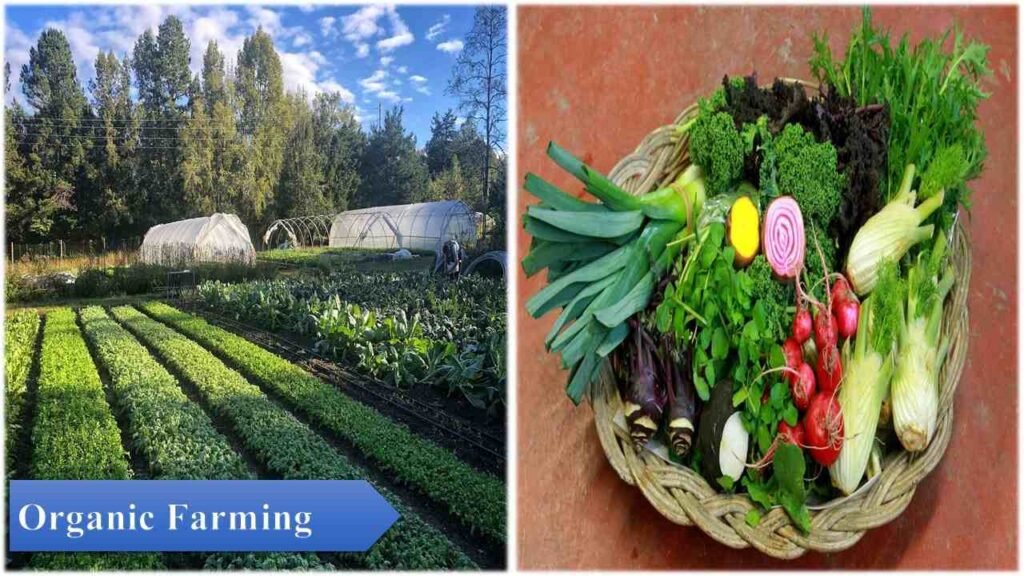
Benefits of Organic Farming
Is organic farming really profitable? To understand that we should first take a look at the benefits of organic farming.
- Makes agriculture more rewarding for the farmer and sustainable for the environment.
- They help in nutrient recycling (N, P, K, etc.) and enhance soil fertility.
- Reduce cost through the use of environment-friendly inputs and by using eco-friendly cultivation practices.
- Improves and maintains agroecosystem and natural landscape for sustainable production.
- Gives us pollution-free air, water, soil, and natural resources.
- Improves biodiversity of the field.
- Organic farming is lauded for protecting Indigenous Technical Knowledge (ITK) that has been used for generations and is a part of our culture.
- Produces healthy, nutritious, and chemical-free fruits and vegetables which can fetch premium prices 25 to 100 percent more than conventional products.
- Uses renewable on-farm resources.
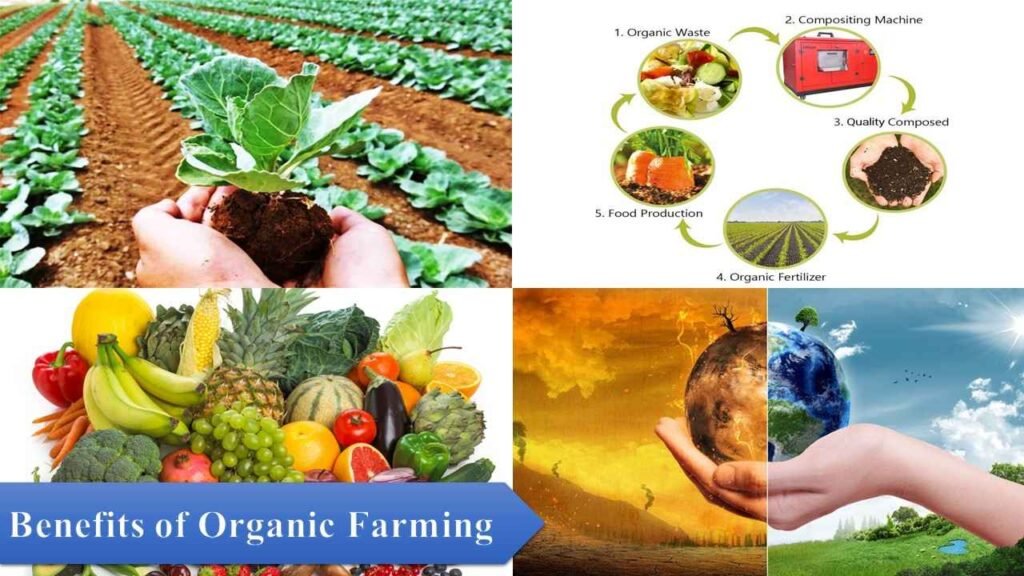
These benefits pinpoint the exact reasons why organic farming (which constitutes only about 2% of total farming) is becoming prevalent in the country and why you and I should adopt organic practices. But this has not yet answered our question: Is there any profit in organic farming?
So, to answer our above-mentioned question, let us try to learn more about the factors that reduce the cost of cultivation and increase the profitability of the produce by 10 to 50 percent in organic farming.
Why is Organic Farming Profitable?
The factors that make organic farming profitable in India are
Market Demand and Price Premium
The first and foremost factor that makes organic farming profitable is the demand for organic produce and its premium prices in the market (it can fetch anywhere from 20 to 100% more than conventionally produced ones). This price difference is majorly reflected in vegetables. This high cost of organic produce can be attributed to
- The organic certification process requires a significant amount of money expenditure from the farmer’s side.
- Unlike conventional farming, the yield per area in organic farming is low.
- Only 1% of farmlands worldwide are under organic farming practices thus the products have a very low supply.
- Greater time needs to be spent from the farmer’s side to acquire knowledge and perfect the cultivation methods.
- To maximize profits, money has to be spent on infrastructure and technology like greenhouses, drip irrigation systems, etc.
Even with such high prices, organic products enjoy a high market demand. This is mainly due to their perceived health benefits, environmental support, and a desire to support sustainable farming practices.
A study by the Organic Trade Association reported that organic food sales in the United States reached $56.4 billion in 2020, representing a 12.4% increase over the previous year. This is the perfect example of the robust demand for organic products that we are witnessing now my friends.
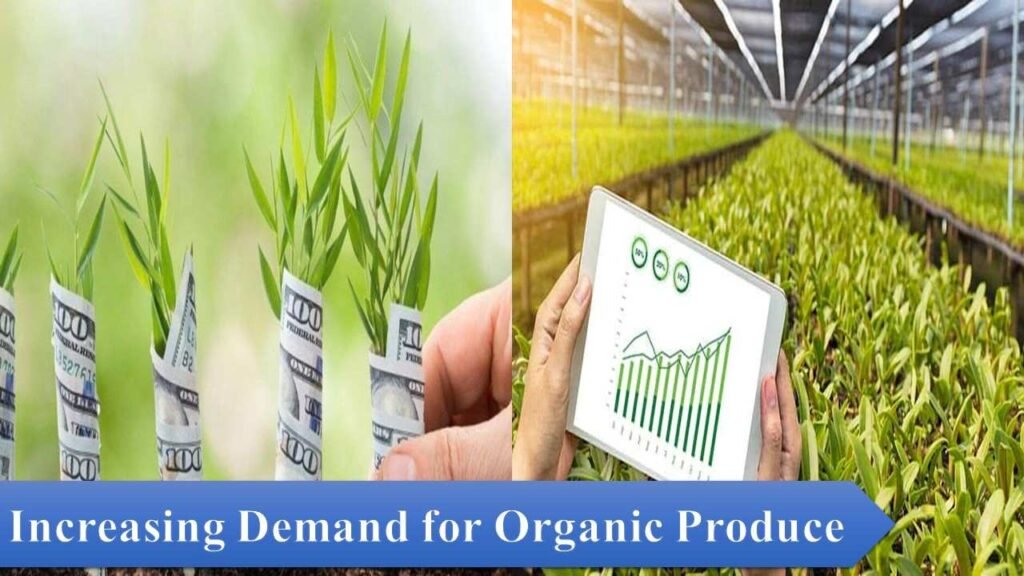
Also Read
- How to Get Organic Certification in India: Steps, Cost, Agency and Documentation
- Natural Farming VS Organic Farming
Cost and Inputs
We have seen the huge demand and premium prices that organic products fetch, however, it is important to consider the cost and inputs for organic farming. Here is a simple breakdown of the cost of a few inputs for 1 ha land
| Sl. No | Particular | Estimated cost for 1 ha |
| 1 | Seed and planting materials | ₹ 2 lakhs |
| 2 | Fertilizers and nutrients | ₹ 1.5 lakhs |
| 3 | Organic pest control and crop protection | ₹ 2 lakhs |
| 4 | Labor costs | ₹ 3 lakhs |
| 5 | Utilities (water, electricity, etc.) | ₹ 50 thousand |
Even though the cost required for organic farming is higher than conventional agricultural practices, evidence suggests that over time, these costs can be mitigated through practices that enhance soil health and reduce reliance on external inputs.
A study published in the journal “Agriculture, Ecosystems, and Environment” compared the profitability of organic and conventional farming systems and found that while initial costs may be higher for organic farming, the long-term resilience and improved soil fertility of organic systems can lead to sustained profitability.
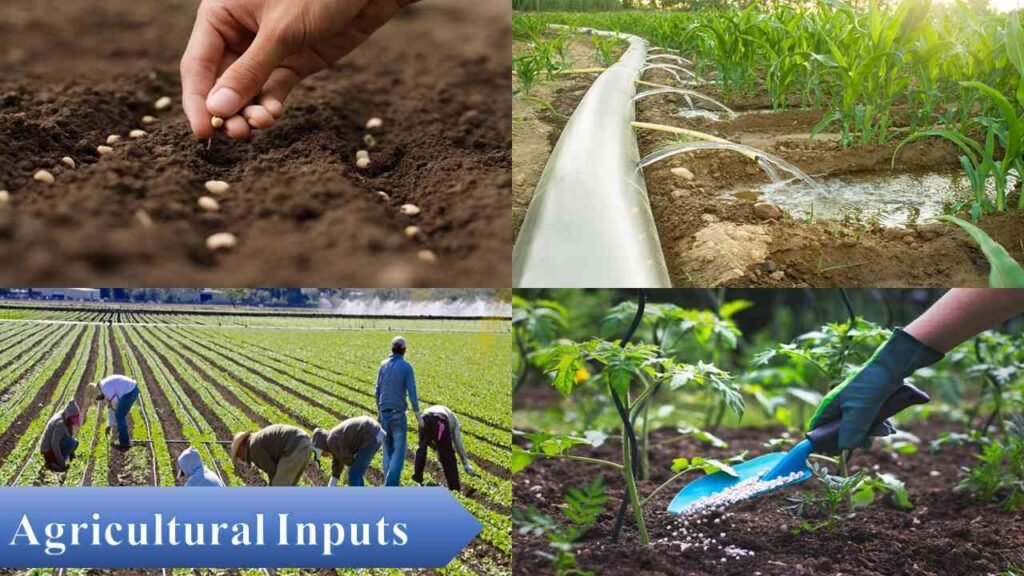
Read More:
Government Support and Incentives
The Ministry of Agriculture and Farmers Welfare of the Government of India has come up with Subsidies, Incentives, Cluster-based support programs, and training programs to spur the growth of the organic sector in India.
According to the International Federation of Organic Agriculture Movements (IFOAM), India has 1.94 million hectares of certified land. One of the schemes that helped achieve these are
National Program for Organic Production (NPOP)
- Launched in 2001 by the Indian Ministry of Commerce and Industries.
- The main objective of NPOP is to provide certification for organic products grown according to criteria specified by the government.
- Regulate various certification agencies in the country.
- Also responsible for promoting organic farming and organic processing in India.
National Food Security Mission (NFSM)
- NFSM was launched in 2007 to increase the productivity of targeted crops like rice, wheat, pulses, and others.
- As a measure to reduce the use of chemical fertilizers, financial assistance is provided to increase the use of biofertilizers under the scheme.
Paramparagat Krishi Vikas Yojana (PKVY)
- The scheme was launched on the occasion of the National Organic Summit held at Gangtok, Sikkim.
- Also known as the Traditional Farming Improvement Program, the scheme was implemented with the objective of promoting Organic Farming in India.
- Financial assistance of ₹50,000 or more (subject to terms and conditions) is provided to adopt eco-friendly concepts and reduce dependence on chemicals.
National Mission for Sustainable Agriculture (NMSA)
This scheme is a culmination of 4 ongoing national schemes
- Rainfed-based Area Development Program
- National Mission for Micro Irrigation
- National Organic Farming Program
- National Soil Health and Fertility Management Program
The aim of the scheme is the efficient utilization of agricultural inputs to ensure sustainable agricultural practices.
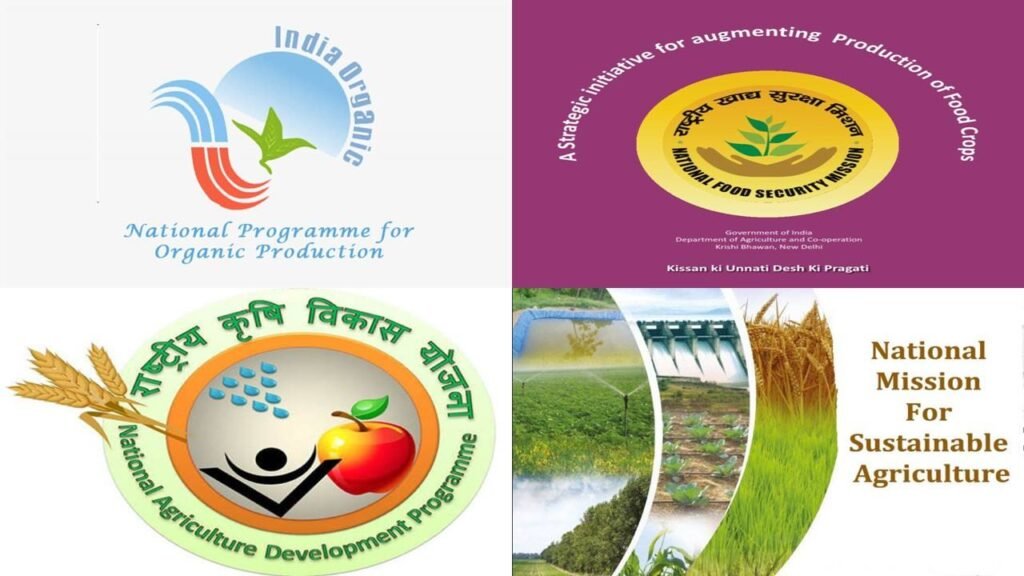
Environmental and Social Benefits
- Organic agricultural practices aim to make profits while promoting sustainability.
- Organic farming practices, according to the Food and Agriculture Organization (FAO) of the United Nations (UN), increase soil ecosystem health by integrating soil-building practices such as minimum tillage (and 0 tillage), crop rotation, intercropping, cover cropping, and the use of biofertilizers and biopesticides.
- Groundwater pollution was one of the biggest problems that ensued in conventional farming practices. The residues created by chemical fertilizers and pesticides are the main reasons for this problem. With the use of organic fertilizers and bio-friendly inputs, organic farming practices can be a solution to this problem.
- The agrochemicals (fertilizers, herbicides, and pesticides) being used today are the results of manufacturing processes that require high amounts of non-renewable energy resources like ammonia (NH4) that harm the environment. So, the replacement of these products with organic alternatives will benefit the environment.
- Organic farming encourages bio-intensive farming practices like agroforestry and intercropping that help in Carbon sequestration. This decreases the amount of carbon dioxide in the atmosphere which contributes heavily to global warming.
- Organic farming also provides ecological services due to its affinity with the environment. The services provided are soil building, carbon sequestration, soil conditioning, waste management, nutrient cycling, and habitat formation.
Is organic farming profitable? | Organic farming income Analysis
So far we have come up with relevant points to substantiate it. But to really get an Idea, let us do a financial analysis of a sample agricultural land of a 1-hectare area growing crops under organic production practices.
Simplified Financial Breakdown of a 1 hectare Area of Land Under Organic Farming Based on Estimations and Assumptions
Initial Investment
| Sl. No | Particular | Estimated Cost (in rupees) |
| 1 | Land purchase/Lease | ₹5 lakhs |
| 2 | Infrastructure (fencing, irrigation, storage, etc.) | ₹3 lakhs |
| 3 | Machinery and equipment (tractor, tiller, seeder, etc.) | ₹5 lakhs |
| 4 | Seeds, seedlings, and soil amendments | ₹2 lakhs |
| Total initial investment | ₹15 lakhs | |
Annual Operation Cost
| Sl. No | Particular | Estimated Cost (in rupees) |
| 1 | Labor (including two full-time farmers) | ₹3 lakhs |
| 2 | Organic fertilizers and pest control | ₹1.5 lakhs |
| 3 | Water, electricity, and maintenance | ₹1 lakh |
| 4 | Administrative and Miscellaneous | ₹50 thousand |
| Total annual operational cost | ₹6 lakhs | |
Total cost of the organic farm = total initial investment + total annual operational cost = ₹15 lakhs + ₹6 lakhs = ₹21 lakhs
Potential returns
| Sl. No | Particular | Estimated Returns (in rupees) |
| 1 | Crop yield and sales – assuming diversified crops (vegetables, fruits, herbs) with conservative estimates | ₹25 lakhs |
| 2 | Livestock revenue (if applicable) – eggs, milk, meat, etc. | ₹3 lakhs |
| 3 | Other potential income streams (farm tours, workshops, value-added products, etc.) | ₹2 lakh |
| Total potential returns | ₹30 lakhs | |
With these estimated costs and returns, the potential profitability can be calculated as follows:
Potential Profit = Total Potential Returns – Total Annual Operational Costs
Therefore, potential profit = ₹30 lakhs – ₹6 lakhs = ₹24 lakhs
These values can change considerably based on factors like
- Location
- Market demand
- Crop choices
- Fluctuations in input costs
- Climatic conditions
Management skills of the owner are also an important factor that needs to be considered as a well-manged farm can even stride through droughts and floods.
Read More:
Conclusion
Throughout this article we have been trying to find out the answers to two questions:
Is organic farming profitable? and Why is organic farming profitable?
We have looked at the benefits of organic farming and its profitability through a sample financial analysis mentioned above. So, it is safe to conclude that based on qualitative and quantitative grounds, organic farming is profitable.
But we should all be wary of the fact that we cannot arrive at a definitive conclusion. There is always a certain degree of uncertainty associated with agriculture. Also, the estimates taken in this article are of ideal farming conditions. But we should always be ready to handle whatever may come our way. It is essential to develop our risk-handling ability which is the best asset a farmer can have. But if we apply the right mind and have the right strategy, we can assert that organic farming is profitable.
Latest Post
- January Issue 2026- Times of Agriculture Magazine
- Top 10 Agricultural Drone Companies in India
- December Issue 2025- Times of Agriculture Magazine
- November Issue 2025- Times of Agriculture Magazine
- Punjab & Sind Bank Introduces Special Program to Support Food and Agro-Processing Sector
- Beyond Classrooms and Gardens: How a Professor Turned His Passion into Purpose
- October Issue 2025- Times of Agriculture Magazine
- Top 10 Pesticide Companies in the World
- September Issue 2025- Times of Agriculture Magazine




